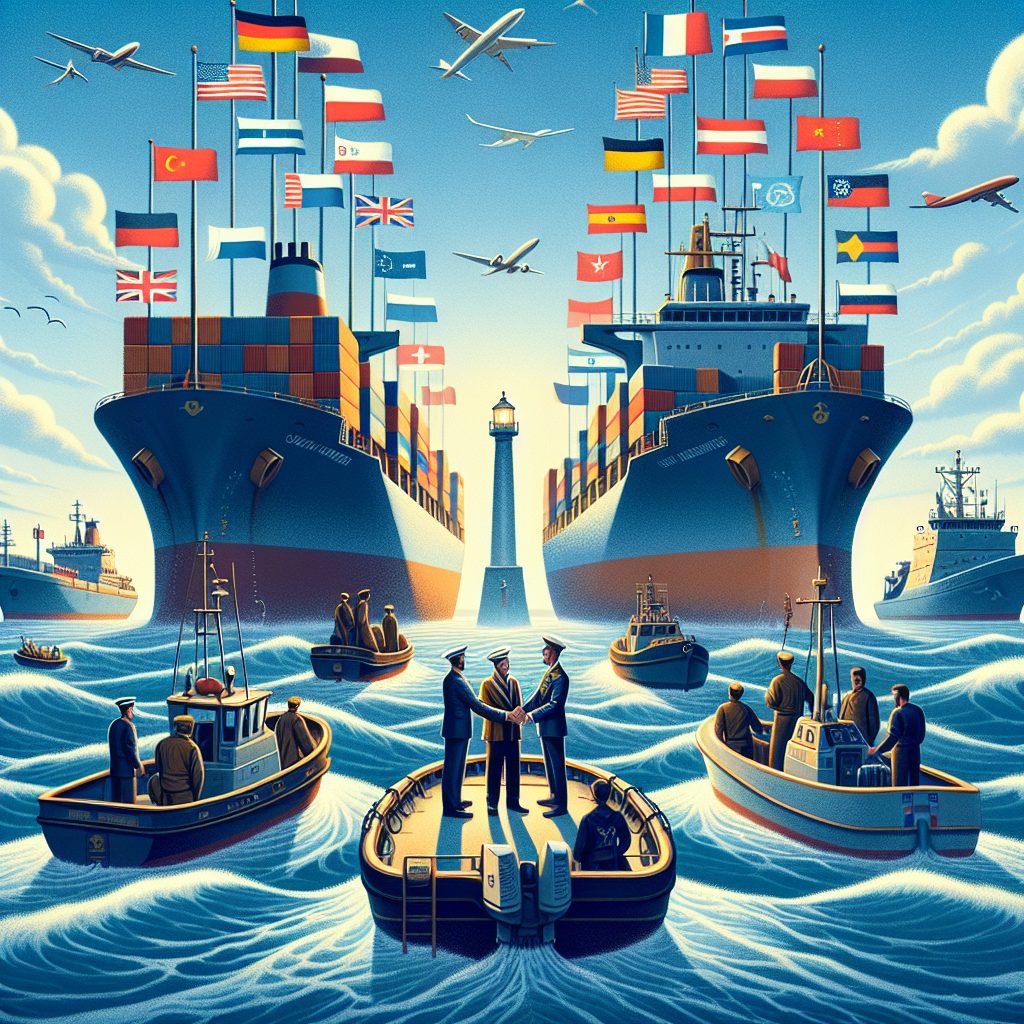India Hosts Conference on Maritime Decarbonization, Setting the Course for a Greener Maritime Sector
The conference underscored India's ambitious commitment to achieving net-zero carbon emissions by 2070, emphasizing the role of its maritime sector in the fight against climate change.

- Country:
- India
The Conference on Maritime Decarbonization, co-hosted by the Ministry of Ports, Shipping & Waterways (MoPSW) and the Asian Development Bank (ADB), concluded today at Le Meridien, New Delhi. The event brought together over 200 delegates, including leaders from key Indian ports, government officials, industry stakeholders, international experts, and academia, to explore strategies for advancing green shipping and sustainable port operations.
The conference underscored India's ambitious commitment to achieving net-zero carbon emissions by 2070, emphasizing the role of its maritime sector in the fight against climate change. The discussions were aligned with the Maritime India Vision 2030 and covered critical themes such as green port infrastructure, clean harbor craft, the use of zero-carbon fuels, emission reduction strategies, and electrifying inland waterways.
Shri T. K. Ramachandran, Secretary of MoPSW, delivered a powerful keynote address, highlighting India’s dedication to transforming its maritime sector. "India's maritime sector is not just a key driver of the nation’s economy but also a critical player in our fight against climate change," he said. Ramachandran emphasized the Harit Sagar Green Port Guidelines and Harit Nauka Green Transition Guidelines as key steps toward adopting green energy and sustainable port operations. MoPSW’s goal to have all vessels in Indian waters transformed into green vessels by 2047 is a cornerstone of the nation's climate strategy.
The conference highlighted the National Green Hydrogen Mission, focusing on making India a global leader in green hydrogen production. This mission aligns with India’s net-zero target for 2070 and is central to reducing carbon intensity in the maritime sector. The "Working with Nature" principles adopted by MoPSW ensure that economic growth in the maritime industry complements environmental sustainability.
Sessions on Green Ports and Zero-Carbon Fuels
One of the conference’s key sessions focused on Green Ports and Maritime Decarbonization, where experts shared insights on reducing the carbon footprint of Indian ports. Ajay Kumar Singh, Head of DNV Maritime Advisory India, discussed how smart ports could enhance energy efficiency, while Lawrence Ong from Singapore’s Maritime and Port Authority shared Singapore’s decarbonization journey.
A session on zero-carbon fuels for maritime operations emphasized the need for early adoption of alternatives such as green hydrogen and ammonia. Captain Prashant S. Widge from Maersk Line discussed the global challenges in transitioning to green fuels, while Madhu Nair, CMD of Cochin Shipyard, shared India's experience with alternative fuels in maritime operations.
Focus on Inland Waterways and Ecosystem Development
Decarbonization of Inland Waterways emerged as a critical theme, with R. Lakshmanan, Joint Secretary (IWT) at MoPSW, and P. J. Shaji from Kochi Water Metro, highlighting efforts to reduce emissions in water-based transportation. Lakshmanan stressed the need to transition to low-emission alternative fuels to tap into the full potential of inland waterways as a sustainable transportation mode.
Shri Lakshmanan also discussed the MoPSW’s blueprint for developing ecosystems for green hydrogen production and export at major ports, underlining the importance of continued collaboration between government bodies, industry leaders, and international partners to drive tangible progress in decarbonization efforts.
The conference concluded with a panel discussion moderated by Dr. Yesim Elhan-Kayalar, Advisor, ERDI at ADB, focusing on India’s decarbonization priorities and the path forward for green shipping practices. The event emphasized the importance of sustained collaboration between the government, industry, and international organizations to achieve shared decarbonization goals. It also laid the groundwork for future discussions on financing models and regulatory frameworks to support the growth of green shipping and port development.
The insights and commitments from the Conference on Maritime Decarbonization will play a pivotal role in shaping India’s policies and practices as the nation accelerates toward a cleaner, greener maritime sector.
- READ MORE ON:
- Asian Development Bank
- inland waterways










